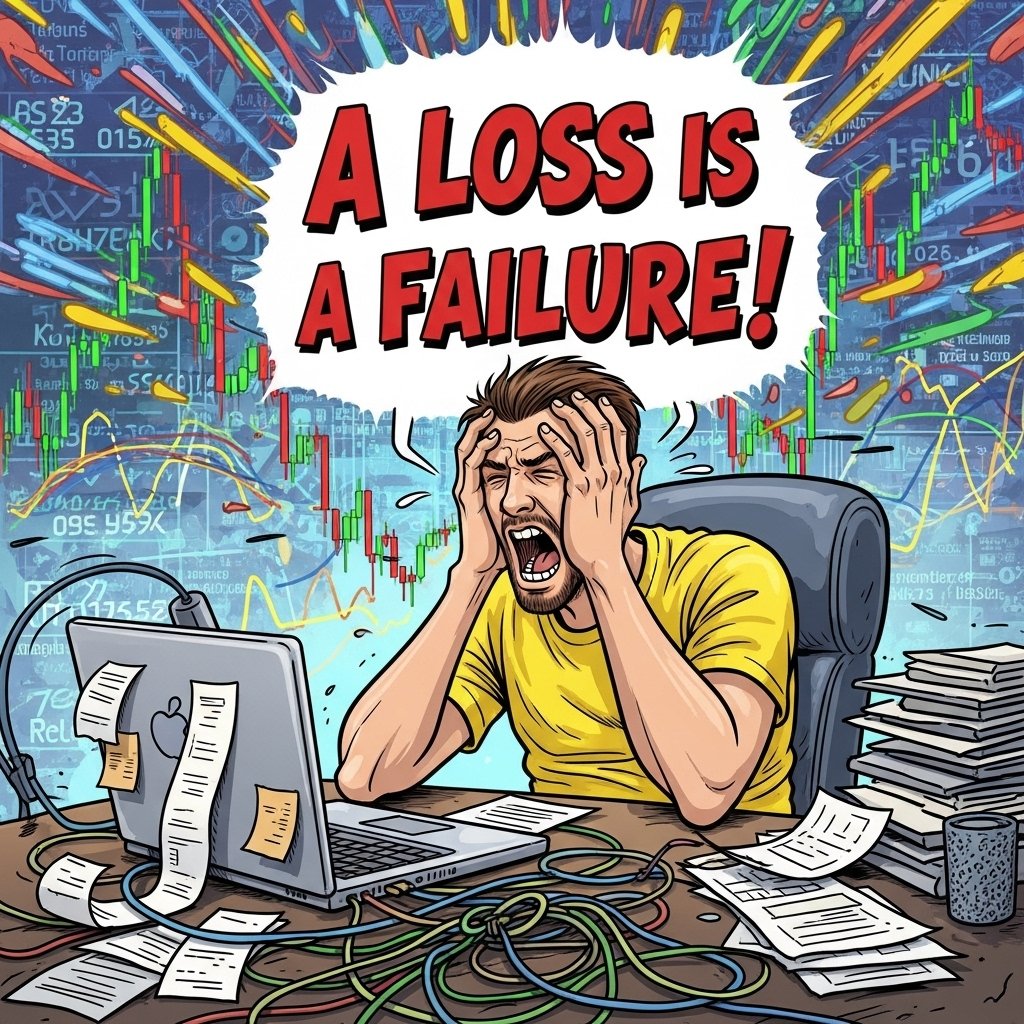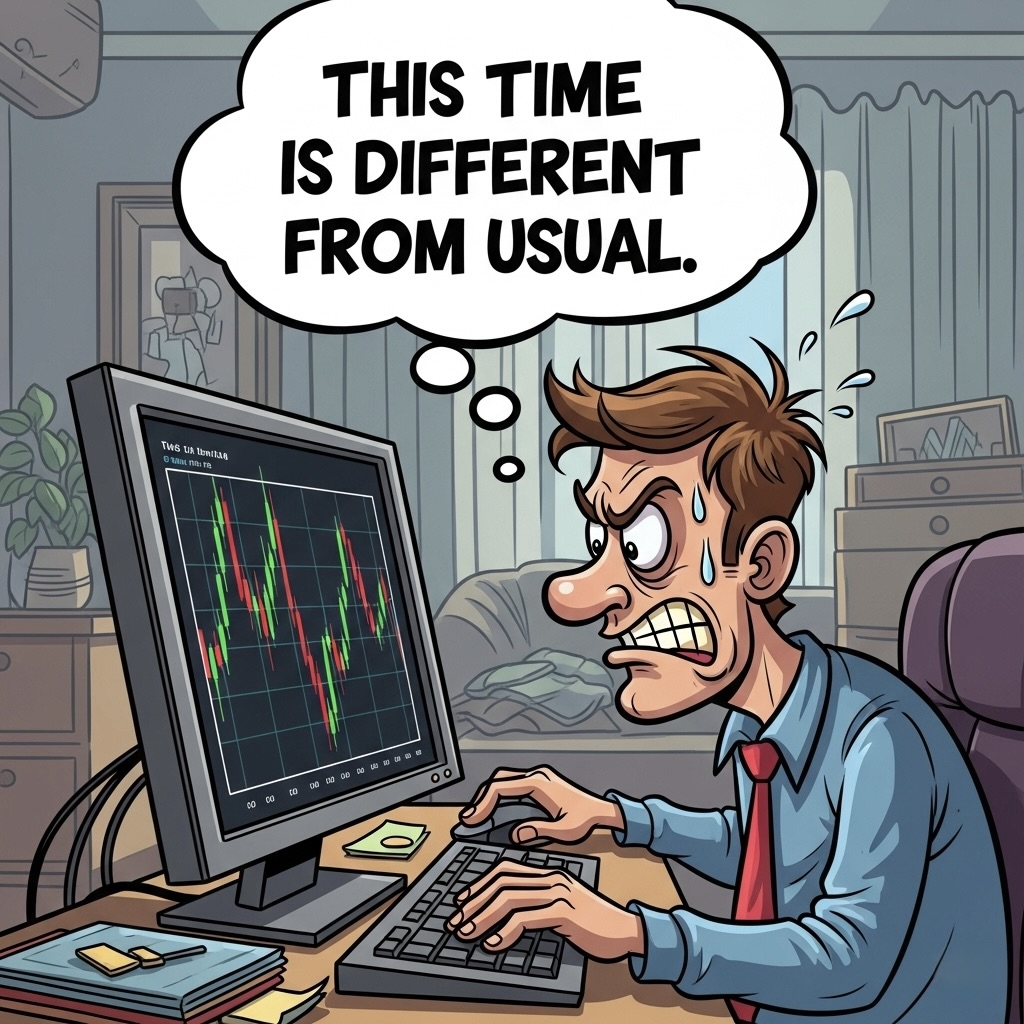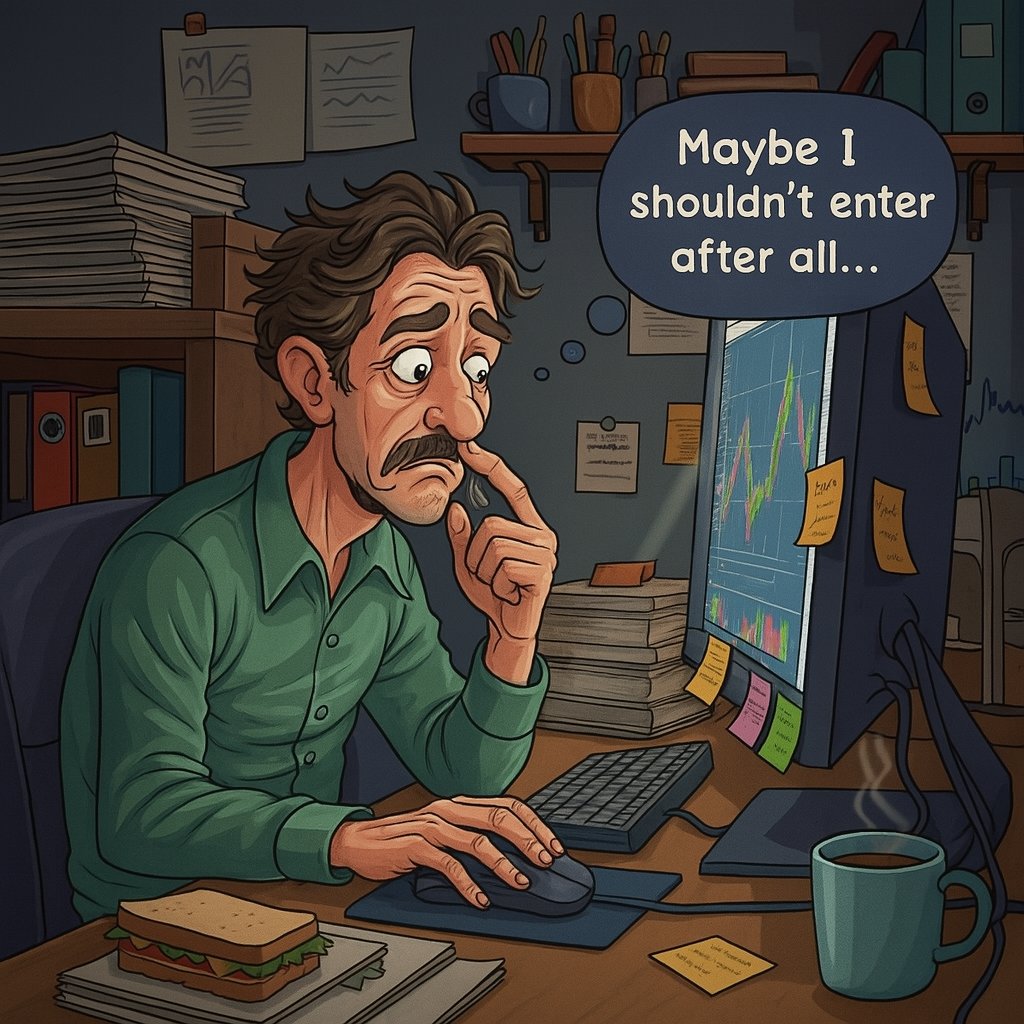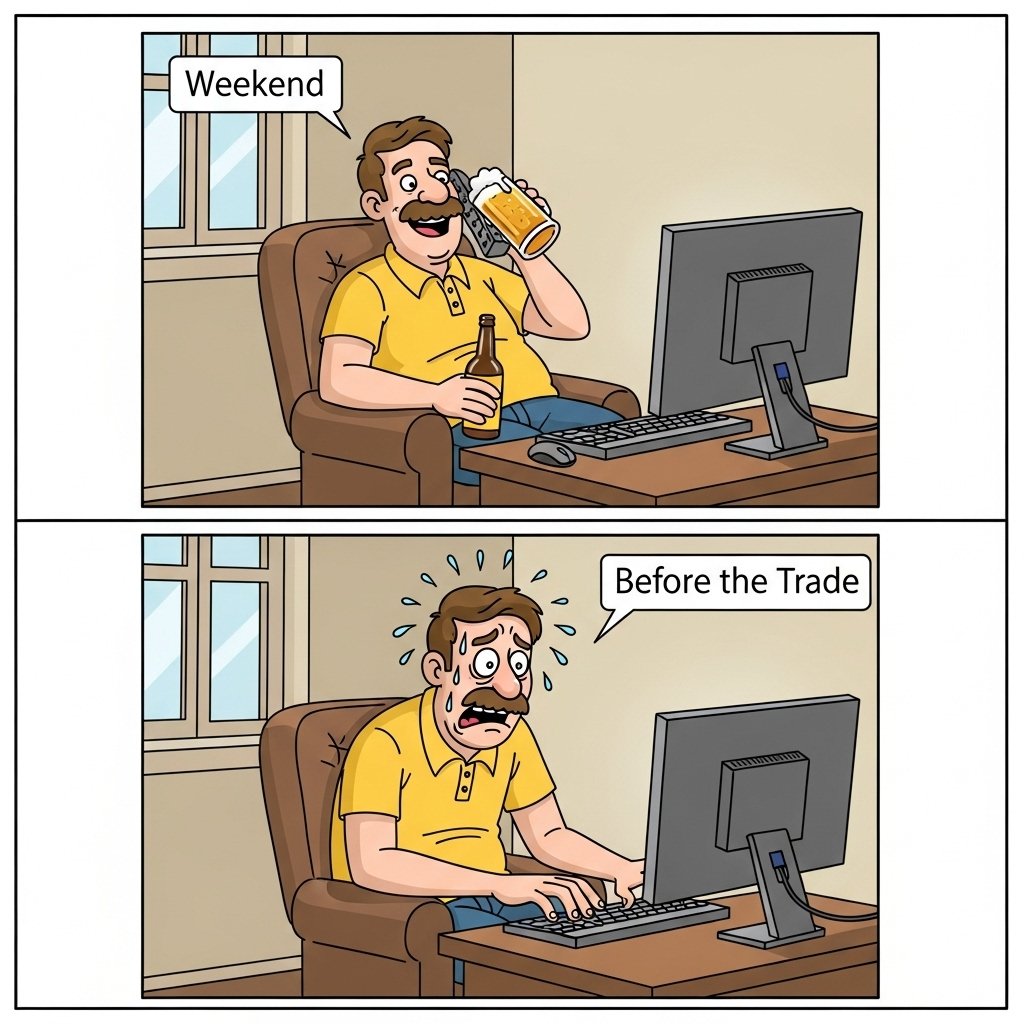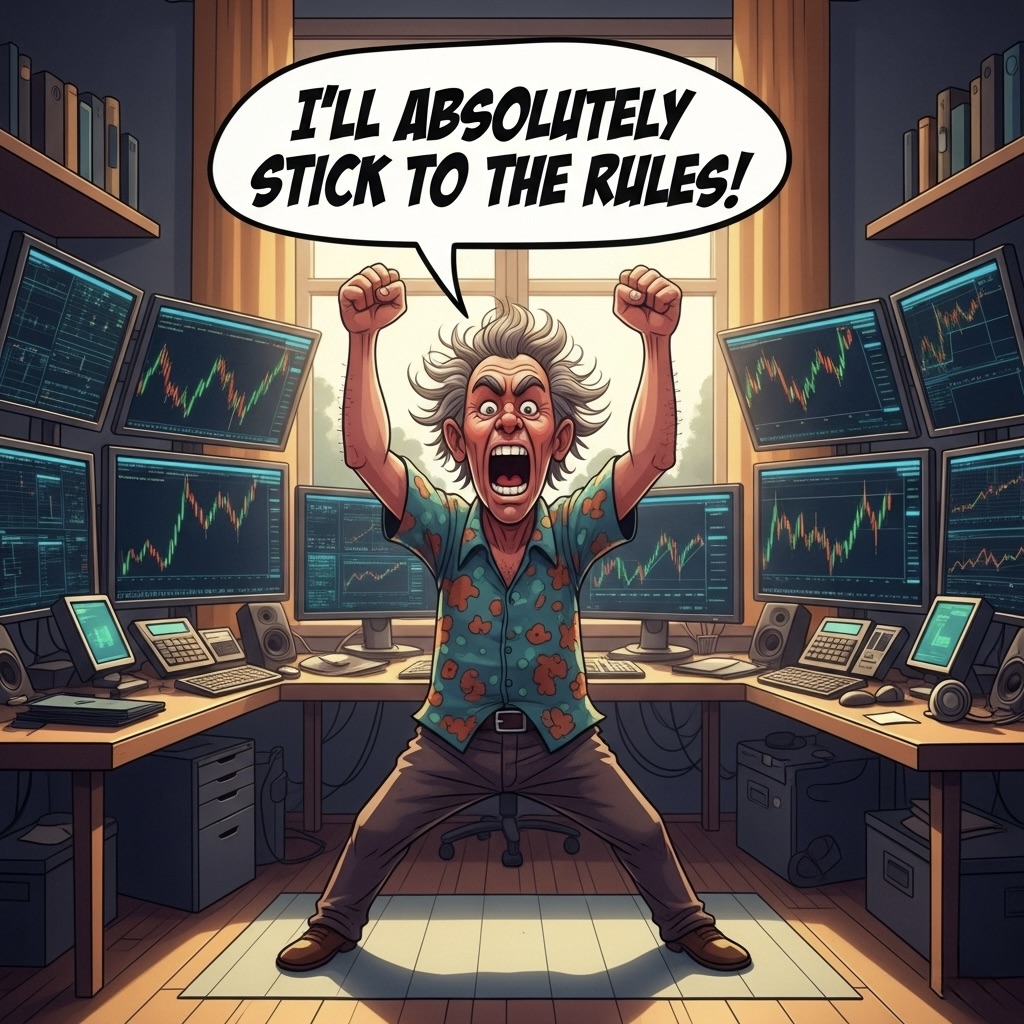What the chart does after you close a position according to your rules is irrelevant to you.🧵
・The price rallied further after you took profit.
・The price moved in your intended direction after you cut your loss.
So what?
🧵1/5
・The price rallied further after you took profit.
・The price moved in your intended direction after you cut your loss.
So what?
🧵1/5

2/5
I understand the frustration of "the price rallying further after taking profit" or "the price moving in my intended direction after cutting my loss," but your trading will fall apart if you start thinking about this.
Let's remember your job as a trader again.
Your job is to repeatedly execute trades according to your rules and extract your edge through the law of large numbers from a large sample size built solely on those rule-based trades.
If your strategy and rules have an edge, all you have to do is keep repeating them.
All chart movements outside of those rules are irrelevant to you.
Don't try to capture every move.
I understand the frustration of "the price rallying further after taking profit" or "the price moving in my intended direction after cutting my loss," but your trading will fall apart if you start thinking about this.
Let's remember your job as a trader again.
Your job is to repeatedly execute trades according to your rules and extract your edge through the law of large numbers from a large sample size built solely on those rule-based trades.
If your strategy and rules have an edge, all you have to do is keep repeating them.
All chart movements outside of those rules are irrelevant to you.
Don't try to capture every move.
3/5
It's impossible to catch every price move.
This time the price may have rallied further after you took profit, but there are other times when it doesn't.
If you start getting swayed by results influenced by such one-off random events, you will develop an increasingly short-term perspective and lose your ability to trade consistently.
Above all, thinking in terms of wins, losses, or hindsight is proof that you have absolutely no understanding of probabilistic thinking.
It's impossible to catch every price move.
This time the price may have rallied further after you took profit, but there are other times when it doesn't.
If you start getting swayed by results influenced by such one-off random events, you will develop an increasingly short-term perspective and lose your ability to trade consistently.
Above all, thinking in terms of wins, losses, or hindsight is proof that you have absolutely no understanding of probabilistic thinking.
4/5
I can almost hear you say, "But the price rallies every time after I take profit, and it moves in my intended direction every time after I cut my loss," but is it really "every time"?
Or does it just feel like it's every time; have you actually collected the statistics?
In the first place, did you even test your current rules with proper statistics?
If your current rules were truly tested properly, you should have encountered the same issue during the testing phase.
So why is it that only now you're saying things like, "this happens every time after I close a position"?
It's likely because you decide everything vaguely based on the heat of the moment and experience from a small sample size that you lack confidence in your rules and can't maintain consistency, getting swayed by the results right in front of you.
I can almost hear you say, "But the price rallies every time after I take profit, and it moves in my intended direction every time after I cut my loss," but is it really "every time"?
Or does it just feel like it's every time; have you actually collected the statistics?
In the first place, did you even test your current rules with proper statistics?
If your current rules were truly tested properly, you should have encountered the same issue during the testing phase.
So why is it that only now you're saying things like, "this happens every time after I close a position"?
It's likely because you decide everything vaguely based on the heat of the moment and experience from a small sample size that you lack confidence in your rules and can't maintain consistency, getting swayed by the results right in front of you.
5/5
If your rules have an edge, you just have to follow them.
There is absolutely no need for you to worry about events that occur outside of those rules.
If it really bothers you, close your screen after a trade.
All you need to do is keep repeating the same actions and extract the edge your rules possess.
Thanks for reading!
If you enjoyed this thread, check out my books on trading.
E-book
payhip.com/YumiSakura/col…
Paperback
【THE PATH TO SUCCESS IN TRADING】
a.co/d/fXmRhIa
【Trading Psychology】
a.co/d/d0QJMxK
Hope these insights help your trading journey😊
If your rules have an edge, you just have to follow them.
There is absolutely no need for you to worry about events that occur outside of those rules.
If it really bothers you, close your screen after a trade.
All you need to do is keep repeating the same actions and extract the edge your rules possess.
Thanks for reading!
If you enjoyed this thread, check out my books on trading.
E-book
payhip.com/YumiSakura/col…
Paperback
【THE PATH TO SUCCESS IN TRADING】
a.co/d/fXmRhIa
【Trading Psychology】
a.co/d/d0QJMxK
Hope these insights help your trading journey😊
• • •
Missing some Tweet in this thread? You can try to
force a refresh


